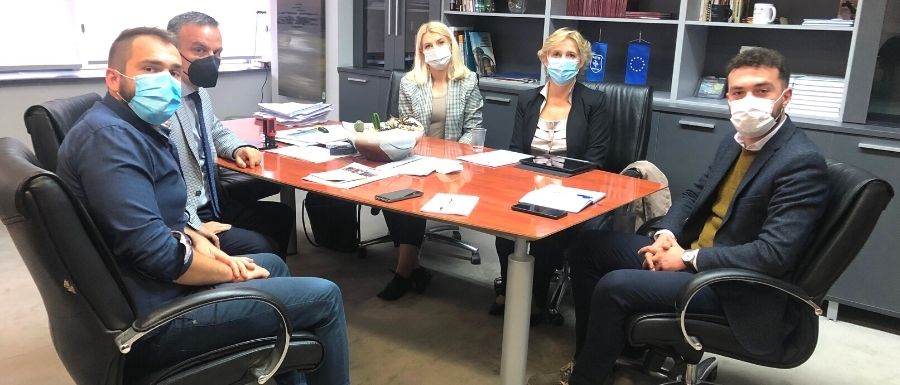ALDA Secretary General – Antonella Valmorbida – together with Katica Janeva – Director of ALDA Skopje office and South Eastern Europe Coordinator – visited Kosovo* and North Macedonia on an institutional mission, from September 27th until 30th. Several meetings and events on the agenda, one of which with Emir Coric, ALDA Governing Board Member.
Yet, before proceeding, a few primary remarks are needed. From a general perspective, with no doubt ALDA is considered a stable and strategic partner for members and stakeholders in the region, in view of the operational office in Skopje, the 8 Local Democracy Agencies and the over 40 members ALDA counts in the area. Last but not least, ALDA is also among the founders of the Balkan Network for Local Democracy (BNLD), since 2019.
Having that in mind, on September 29th, Ms. Valmorbida together with Ms. Janeva had a meeting with Emir Coric, ALDA Governing Board Member (GB), and representative of the Municipality of Centar, in Nord Macedonia. Considering the great and fruitful relation among ALDA and its GB Members, this occasion of sharing and dialogue has been as positive and stimulating as expected. Thus, key issues were discussed, especially as far as ALDA’s new strategy and vision with members in the Balkan Region concerns.
Mr. Coric, Governing Board Member, stressed that the “Association’s priorities for the Region has to be translated into decentralization, subsidiarity and interaction with citizens”
More in depth, larger discussion about ALDA’s initiatives to support regional cooperation and EU integration processes in the Region was at the heart of the matter. Hence, promoting local democracy and citizens’ participation as a precondition for local sustainable development is essential in ALDA’s work and engagement in the Balkan areas.
Moreover, the positive examples of:
- “Link4Cooperation” the project is based on the ELoGE principle;
- “VALID” – a Europe for Citizens project, lead by Municipality of Peja; and
- “DAFLS” – ERASMUS+ project with University Caen, University of Skopje and University of Belgrade
clearly testify the great and positive impacts that ALDA, and its members, have in the area. Thus, as also stressed by Mr. Coric, “the Association’s priorities for the Region has to be translated into decentralization, subsidiarity and interaction with citizens”.
Overall, the meeting has served not only as a great occasion for discussing together the future of the Association in the Balkan Region, but also to see each other in person, spending valuable time together.
